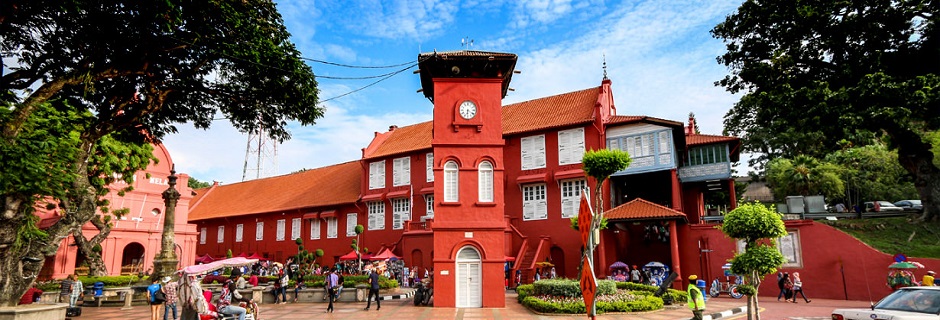Malacca Translation
Translation Services Sabah
May 31, 2020
Translate Immunization Records
June 7, 2020Malacca Translation is part of Translation Services Malaysia, will be supporting our business functions in the Malacca, Malaysia region.
Malacca (Malay: Melaka; Tamil: மலாக்கா; Chinese: 馬六甲; pinyin: Mǎliùjiǎ), dubbed "The Historic State", is a state in Malaysia located in the southern region of the Malay Peninsula, next to the Strait of Malacca.
The state is bordered by Negeri Sembilan to the north and west and Johor to the south. The exclave of Cape Rachado also borders Negeri Sembilan to the north. Its capital is Malacca City, which is 148 kilometers (92 miles) southeast of Malaysia's capital city Kuala Lumpur, 235 kilometers (146 miles) northwest of Johor's largest city Johor Bahru and 95 km (59 miles) northwest of Johor's second-largest city, Batu Pahat. This historical city center has been listed as a UNESCO World Heritage Site since 7 July 2008.
Although it was the location of one of the earliest Malay sultanates, the local monarchy was abolished when the Portuguese conquered it in 1511. The head of state is the Yang di-Pertua Negeri or Governor, rather than a Sultan. Melaka is famous for its unique history and is one of the major tourist destinations in Malaysia. With a highly strategic state position for international trade routes, Malacca was once a well-known international trade center in the East. Many traders anchored in Malacca, especially traders from Arabia, China, and India, traded at the port of Malacca, and from there were born many of the descendants and tribes that exist in Malacca to this day.
The harmonious life and ambiance of the people of Malacca is attributed to the life of various races and ethnicities that have long existed among the local community. Malays, Malaysian Chinese, Malaysian Indians, Baba Nyonya, Kristang, Chitty, and Eurasians are important ethnic groups living in the State of Malacca up to the present day.
Johor Bahru Translation Services
May 31, 2020Malacca Translation
May 31, 2020Translation Services Kuala Lumpur
May 31, 2020Translation Services Malaysia
December 27, 2019Translation Services Penang
May 31, 2020Translation Services Sabah
May 31, 2020
Malacca Translation is part of Translation Services Malaysia, will be supporting our business functions in the Malacca, Malaysia region.
Malacca City (Malay: Bandaraya Melaka or Kota Melaka), is the capital city of the Malaysian state of Malacca. As of 2010 it has a population of 484,885.[3] It is the oldest Malaysian city on the Straits of Malacca, having become a successful entrepôt in the era of the Malacca Sultanate. The present-day city was founded by Parameswara, a Sumatran prince who escaped to the Malay Peninsula when Srivijaya fell to the Majapahit. Following the establishment of the Malacca Sultanate, the city drew the attention of traders from the Middle East, South Asia, and East Asia, as well as the Portuguese, who intended to dominate the trade route in Asia. After Malacca was conquered by Portugal, the city became an area of conflict when the sultanates of Aceh and Johor attempted to take control from the Portuguese.
Following a number of wars between these territories, Aceh declined in influence while Johor survived and expanded its influence over territory previously lost to Aceh in Sumatra when Johor co-operated with the Dutch who arrived to establish dominance over Java and Maluku Islands. However, due to royal internal strife between the Malay and Bugis, the Johor-Riau Empire was divided into the sultanates of Johor and Riau-Lingga. This separation became permanent when the British arrived to establish their presence in the Malay Peninsula. The Dutch, who already felt threatened in the presence of the British, began conquering the Riau-Lingga Sultanate along with the rest of Sumatra, while Johor came under British influence following the signing of the Anglo-Dutch Treaty of 1824.
When the British succeeded in extending their influence over the Malay Peninsula, the city soon became an area of development under the Straits Settlements as part of the British Empire. The development and burgeoning prosperity were, however, halted when the Japanese arrived in World War II and occupied the area from 1942 to 1945. During the occupation, many of the city’s residents were taken and forced to construct the Death Railway in Burma (present-day Myanmar). After the war, the city was returned to the British and remained as the capital of Malacca. The status as a capital remained until the formation of Malaysia in 1963, and in 2008 it was listed, together with George Town of Penang, as a UNESCO World Heritage Site for its long history.
The economy of Malacca City is largely based on tourism. As the economic centre of the state of Malacca, it also hosts several international conferences and trade fairs. The city is located along the Maritime Silk Road, proposed by China in 2013. Among the tourist attractions in Malacca City are A Famosa, Jonker Walk, Little India, Portuguese Settlement, Stadthuys, Maritime Museum, Christ Church, Malacca Sultanate Palace Museum and Taming Sari Tower.


